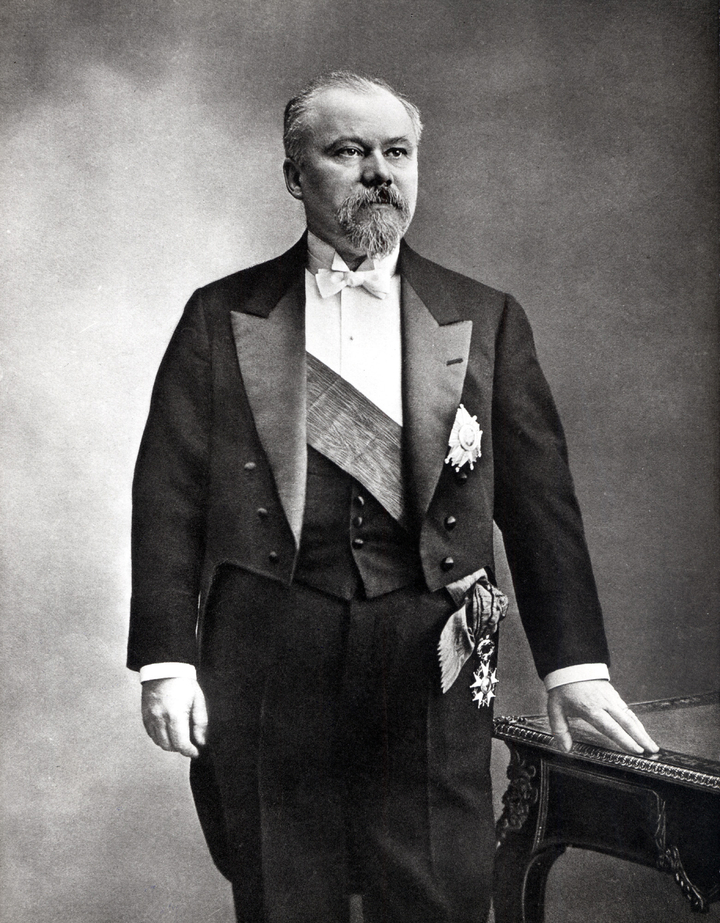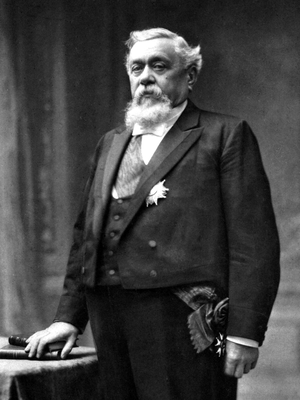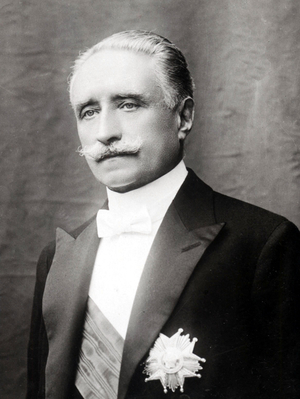
© La Documentation française. Photo Présidence de la République
20 August 1860
Raymond, Nicolas, Landry Poincaré was born in Bar-le-Duc (Department of Meuse). After earning a degree in Law, he took the French attorney’s oath in 1880.
1 August 1886
He was elected Departmental Councillor of the Pierrefitte-sur-Aire district (Department of Meuse).
31 July 1887
He was elected Liberal Republican Deputy of Commercy (Department of Meuse) and re-elected in August 1893.
April-December 1893
He served as Minister of Public Instruction, Fine Arts and Religions.
1894-1895
He served as Minister of Finance.
January-November 1895
He served again as Minister of Public Instruction, Fine Arts and Religions.
22 February 1903
He was elected Senator for the Department of Meuse.
17 August 1904
He married Henriette Benucci.
1906
He again served as Minister of Finance for several months.
18 March 1909
Raymond Poincaré was elected member of the Académie Française.
14 January 1912-20 January 1913
He was Prime Minister and Minister of Foreign Affairs and established a Government of National Unity.
18 February 1913-18 February 1920
He was President of the Republic.
During the conflict, he suffered from the limits of his office, particularly after the Government of Clemenceau was formed.
23-29 June 1913
He made an official visit to the United Kingdom.
7-15 October 1913
He made an official visit to Spain.
13-23 July 1914
He made an official visit to Russia with the Prime Minister, René Viviani, to strengthen alliances two weeks after the Sarajevo assassination.
4 August 1914
Viviani read out to the Chambers Raymond Poincaré’s message which launched the expression “Sacred Union”: France “will be heroically defended by all her sons; nothing will break their sacred union before the enemy.”
13 October 1916
Poincaré travelled to Verdun and awarded the Cross of the Legion of Honour to the martyr city.
20 January 1919
He received a visit from Woodrow Wilson, President of the United States.
21-24 July 1919
The President visited Belgium.
10-14 November 1919
The President made an official visit to the United Kingdom.
13 January 1920
He was re-elected Senator in violation of constitutional law since he was still President of the Republic.
January 1922-June 1924
Under the Presidency of Alexandre Millerand, he served as Prime Minister and Minister of Foreign Affairs again.
Poincaré gave French troops orders to occupy the Ruhr, to obtain from Germany the reparations of war that it refused to pay.
6 January 1924
He was re-elected Senator for the Department of Meuse.
February-March 1924
He saved the French franc threatened by speculation.
June 1924
The victory of the Cartel des Gauches caused Poincaré and President Millerand to resign.
13 June 1924
Gaston Doumergue was elected President of the Republic.
July 1926-November 1928
He served as Prime Minister and Minister of Finance. After the downfall of the Cartel des Gauches, he formed a Government of National Unity and enacted a policy of financial recovery with which his name remains to be associated.
25 June 1928
The Parliament passed the Poincaré Act that established the legal value of the franc.
11 November 1928
He became Prime Minister.
27 July 1929
He resigned for health reasons.
7 October 1934
He was re-elected Meuse Departmental Councillor.
15 October 1934
Raymond Poincaré died in Paris.
also available
Presidents' biographiesUpdated : 15 December 2022

